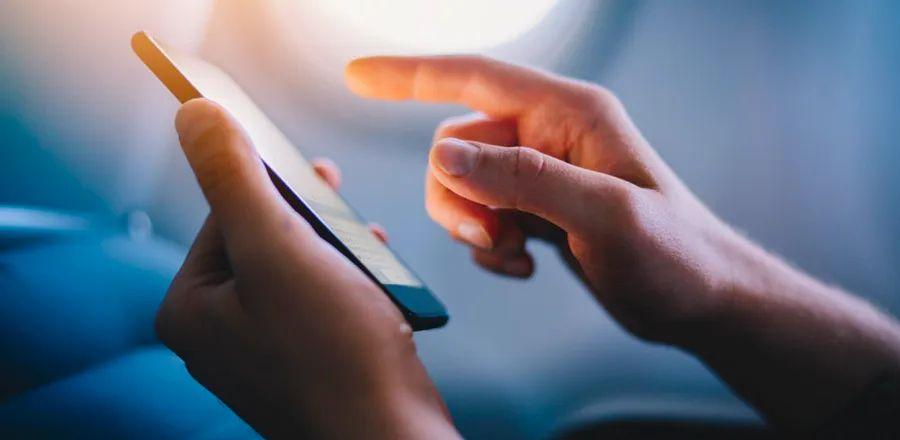You’ll Soon Be Able to Make Phone Calls on Flights Across Europe

In addition to properly stowing carry-on luggage, ensuring your seat is upright, and securing your tray table, switching your phone to airplane mode has been a common requirement before takeoff for airline passengers. However, a new ruling in Europe could eliminate the need for flight mode, allowing travelers to make phone calls at cruising altitude.
The European Commission has recently declared that by June 30, 2023, member states must ensure 5G connectivity is available on planes flying within Europe.
Passengers on EU flights will be able to utilize their mobile phones to their fullest potential, just like on a ground-based 5G network, according to the commission—meaning travelers can text, call, and stream videos while in the air.
"The sky is no longer a limit regarding the possibilities provided by super-fast, high-capacity connectivity," stated Thierry Breton, the EU’s commissioner for the internal market, about the new 5G decision.
The latest mobile technology, 5G, utilizes radio frequencies to transmit information wirelessly, connecting devices and machinery. It's still uncertain how exactly 5G will function on planes, whether it will be free or come with an extra charge, and how it will operate for international flights entering or leaving the European Union.
The EU's decision stands in stark contrast to how the United States is managing 5G connectivity in the air. Earlier this year, airlines sent a letter to the White House and the FCC, cautioning that the rollout of new 5G services could threaten flight safety, leading to cancellations and changes in flight routes. The issue arises because the 5G frequencies used in the U.S. are close to those used in aircraft for altitude measurement, which is crucial in low-visibility conditions, increasing the risk of interference. In Europe, the frequencies are less closely related.
The U.S. rule banning cell phone use on planes was first implemented by the Federal Aviation Administration (FAA) in 1991. The regulation stated that personal devices could potentially disrupt the pilot's navigation system, and it has remained unchanged since. Airlines have long provided Wi-Fi for a fee (or sometimes for free) on flights, which is facilitated by Wi-Fi networks that are often criticized for being slow and unreliable. While in-flight Wi-Fi allows for browsing and texting, it typically lacks the strength for video calls or streaming, and without cellular service, passengers cannot make or receive regular phone calls during flights.
Given that the FAA’s Reauthorization Act of 2018 specifies that "the Secretary of Transportation shall issue regulations to prohibit an individual on an aircraft from engaging in voice communications," it’s improbable that the U.S. will allow phone calls anytime soon, even if 5G use on planes becomes feasible domestically.
"FCC regulations prohibit the use of cellular phones on airborne aircraft," the FAA informed Dinogo when questioned about the issue. The agency did not provide further details on whether 5G and mobile phone usage would likely be permitted on domestic flights, simply stating that "the FAA would collaborate closely with the FCC and other stakeholders to ensure safety if any changes to that prohibition were proposed."
Although the technology may pave the way for phone calls on planes, Henry H. Harteveldt, president of the travel analysis firm Atmosphere Research Group, doubts that in-flight phone calls will actually be permitted.
"I suspect that flight attendant unions will strongly oppose any initiative to allow in-flight phone calls due to fears of inciting air rage among passengers," Harteveldt comments.
Depending on the new regulations that come with 5G on aircraft, we might see more flight attendants taking on roles similar to in-flight security guards, especially as incidents of disruptive passengers have been increasing. In the past two years, the FAA launched investigations into 1,099 unruly passenger cases in 2021, and 767 incidents from January 1 to November 1, 2022. In contrast, the average number of such cases from 1995 to 2020 was only 197 per year.
While having this service could certainly offer advantages, such as improved coordination for airport pickups and the ability to address emergencies while airborne, it might also bring challenges, like disruptive loud conversations and the difficulty of truly disconnecting. Only time will reveal whether the benefits outweigh the drawbacks.

1

2

3

4

5
Evaluation :
5/5